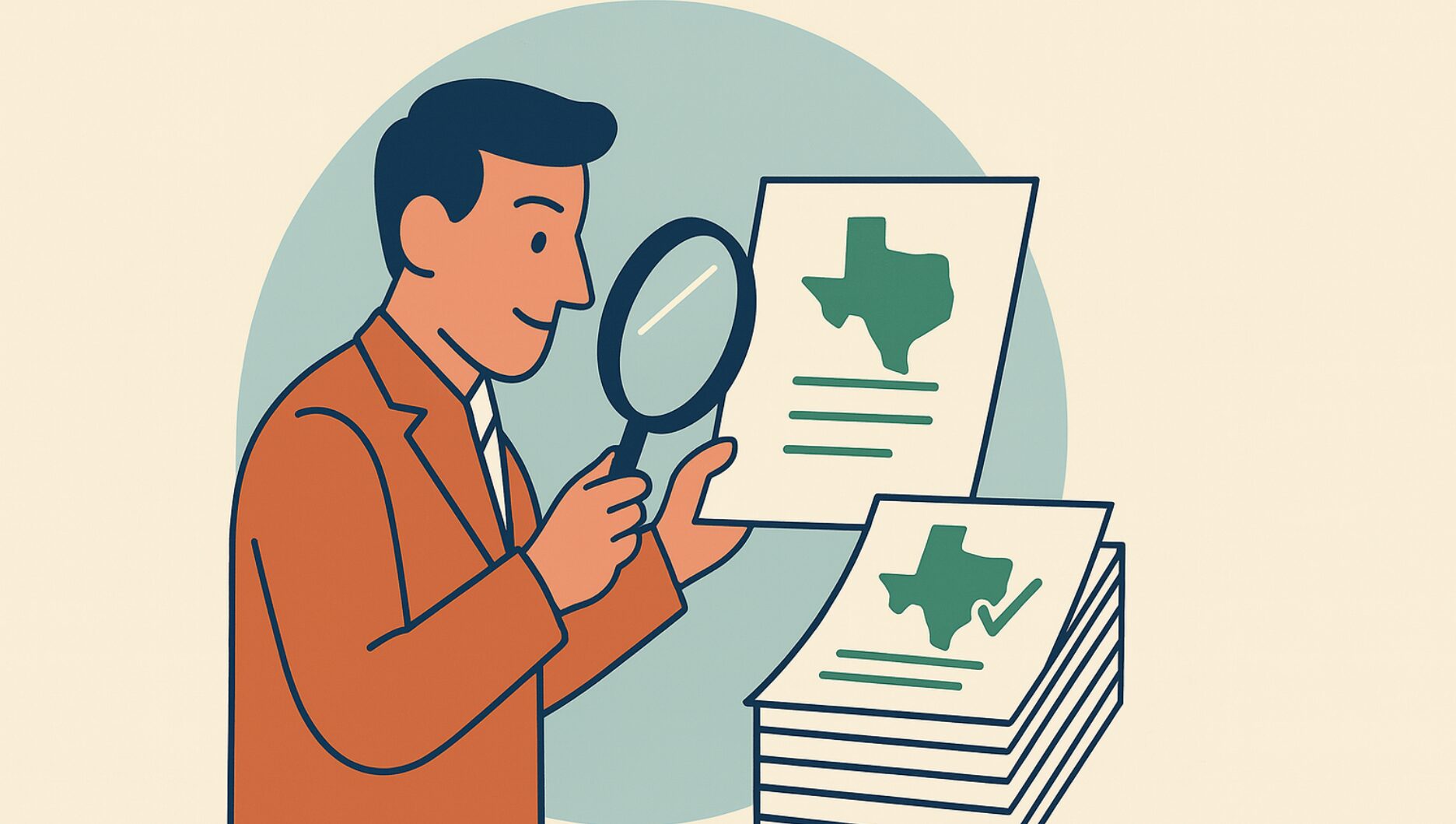Texas ranks 7th in the 2025 State Tax Competitiveness Index, benefiting from its lack of an individual income tax and a competitive unemployment insurance tax system. However, high property taxes, a complex corporate tax system, and excessive government spending, all help to prevent Texas from reaching the top spot. With millions of people and businesses relocating to Texas, the state has a unique opportunity in the 89th Legislative Session to solidify its position as the economic leader by addressing these three key challenges.
What Is the State Tax Competitiveness Index?
The State Tax Competitiveness Index, formerly known as the State Business Tax Climate Index, evaluates how effectively states design their tax systems. It ranks states based on five key categories:
- Corporate Taxes
- Individual Income Taxes
- Sales Taxes
- Property Taxes
- Unemployment Insurance Taxes
States with transparent, low-rate, and neutral tax systems perform best in the index.
Top Five Overall States
- Wyoming
- South Dakota
- Alaska
- Florida
- Montana
Texas excels in individual income taxes (ranked 1st due to having no tax) and unemployment insurance taxes (ranked 30th), but its rankings in other areas, particularly property taxes and corporate taxes, highlight significant room for improvement.
Texas Rankings and Nearby State Comparisons
| Tax Category | Texas Rank (2025) | Nearby States’ Ranks |
| Overall | 7 | Oklahoma (21), New Mexico (31), Arkansas (36), Louisiana (40) |
| Corporate Taxes | 46 | Oklahoma (10), New Mexico (13), Arkansas (30), Louisiana (34) |
| Individual Income Taxes | 1 | Oklahoma (27), New Mexico (36), Arkansas (41), Louisiana (29) |
| Sales Taxes | 36 | Oklahoma (30), New Mexico (35), Arkansas (44), Louisiana (48) |
| Property Taxes | 40 | Oklahoma (9), New Mexico (1), Arkansas (21), Louisiana (21) |
| Unemployment Insurance Taxes | 30 | Oklahoma (25), New Mexico (11), Arkansas (33), Louisiana (13) |
While Texas outperforms neighboring states in overall competitiveness, high property tax burdens and a low corporate tax ranking highlight significant barriers to achieving the top spot.
Addressing the Property Tax Challenge
Texas ranks 40th in property tax competitiveness, primarily due to its heavy reliance on local property taxes to fund public services. Local governments impose some of the highest property tax rates in the nation, with school district maintenance and operations (M&O) property taxes comprising nearly half of total property tax collections.
Recent reforms provide some relief but fail to address systemic issues. To achieve meaningful property tax relief, Texas must use its state budget surplus to buy down school district M&O property tax rates, aiming to eliminate them in about a decade. This approach ensures sustainable relief without compromising funding for essential services.
Reforming the Corporate Tax System
Texas’s gross receipts tax, known as the business franchise or margin tax, ranks 46th in corporate tax competitiveness. This tax applies to gross revenues rather than net profits, making it especially burdensome for businesses with low-profit margins. Phasing out the margin tax would simplify the corporate tax system, attract investment, and improve Texas’s competitiveness.
Spending Restraint: The Foundation for Sustainable Reform
Unchecked government spending is the root cause of Texas’s tax challenges. As TFR’s Frozen Texas Budget outlines, excessive state and local spending drives high property taxes and undermines long-term prosperity.
To address this, Texas must adopt constitutional spending limits with a maximum rate of population growth plus inflation at both the state and local levels, but there is a need for spending cuts in the near term to correct past excesses. This disciplined approach prevents budget bloat and ensures that fiscal deficits or future tax hikes do not follow tax reductions.
Strategic Recommendations for Texas Policymakers
- Adopt Strong Spending Limits: Cap all state and local government spending growth to population growth plus inflation (as an absolute maximum) to ensure fiscal sustainability.
- Use Surplus to Buy Down Property Taxes: Dedicate surplus revenues to phasing out school district M&O property taxes, providing long-term relief to homeowners and businesses alike.
- Eliminate the Margin Tax: Phase out the gross receipts tax to simplify corporate taxation and enhance competitiveness.
- Reform Sales and Property Taxes: Streamline the sales tax system and explore alternatives to high property tax reliance for local government funding.
The Path Forward
Texas is well-positioned to lead the nation in economic competitiveness, but achieving the top spot in the State Tax Competitiveness Index requires bold action. Texas can attract even more businesses and residents by prioritizing property tax relief, corporate tax reform, and spending restraint while fostering a thriving, dynamic economy.
Texans for Fiscal Responsibility relies on the support of private donors across the Lone Star State in order to promote fiscal responsibility and pro-taxpayer government in Texas. Please consider supporting our efforts! Thank you!
Get The Fiscal Note, our free weekly roll-up on all the current events that could impact your wallet. Subscribe today!




